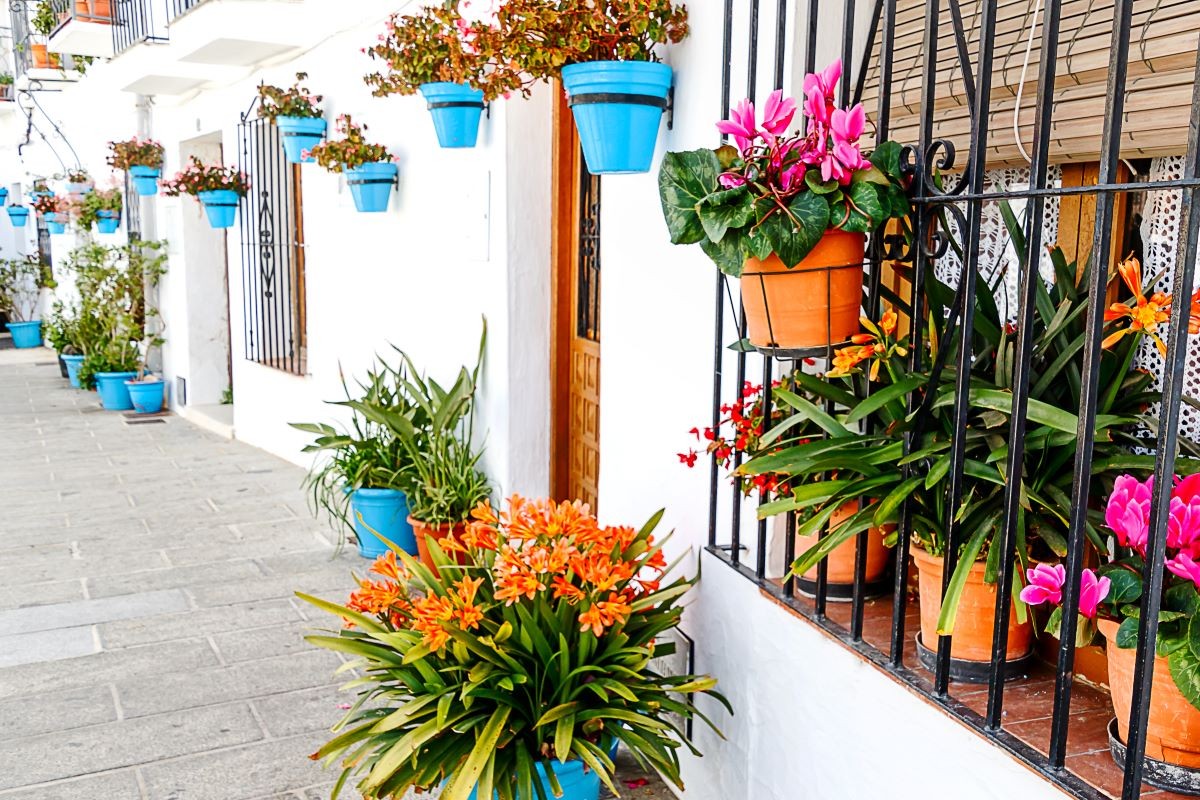Happily, Spain does not rank high in international crime rankings, but home insurance (seguro de hogar) — although not a legal requirement — is advisable (and sometimes mandatory with mortgage applications).
As an Expat, you have specific considerations to take into account. Add to that the various options depending on whether you live in your home, rent it out, or are a tenant, and you can understand why you need to get it right.
This guide explains the ins and outs of home insurance in Spain from an Expat’s perspective and provides the information you need to get the right home and contents policy for your situation.
Understanding the Basics of Home Insurance in Spain
The various types of home insurance fall under two broad groups, homeowners (including landlords) and tenants:
1. For Homeowners
Home Insurance (Seguro de Hogar)
Homeowners insurance is for properties where you or your family reside as your primary home. There are two types of home insurance in Spain:
- Building Insurance (Seguro de Continente)
Covers the fixed property and internal fixtures. The policy may include protection against structural damage from fires, floods, or other disasters. This cover is often a mandatory requirement for a mortgage application on the property. - Contents (Seguro de Contenido)
Covers personal belongings inside the home — such as furniture, electronics, and valuables.
Many home insurance policies combine Building and Content coverage. Liability insurance—which protects against third-party claims if someone injures themselves on your property or if you accidentally cause damage to someone else’s property – is sometimes included.
Landlord Insurance (Seguro de Alquiler)
Landlord insurance is advised if you rent out property long-term, usually through annual contracts. This policy covers the building(s) and liability if a tenant or visitor is injured on the property and holds you responsible. It may include Rental Income Protection if your tenant defaults on rent or if the property becomes uninhabitable due to damage. Rental Income Protection is also available as a separate policy.
Another option for landlord insurance is Legal Assistance, where you have legal protection to help resolve disputes with tenants or assist in eviction processes in extreme cases.
Short-Term Rental Insurance (Seguro para Alquiler de Corto Plazo)
Short-term rental insurance is to cover you when you rent out property on a short-term basis, such as holiday homes or properties leased for less than a year. This insurance typically includes property damage caused by tenants or guests and a higher liability cover due to the increased risk associated with frequent tenant turnover. These policies are generally more flexible to cater to different types of tenants, varying lease terms, and frequent tenant changes.
2. For Tenants
The two common types of home insurance for tenants are:
- Contents (Seguro de Contenido or Seguro de Inquilinos)
Same as Contents insurance as described above. - Common Building Insurance (Seguro de Comunidad)
It is usually taken out by the homeowners’ association of a shared residential building, such as an apartment block. The costs are shared among the tenants. It is not mandatory nationwide, but some regions require it by law.
Common Building insurance covers the building structure, including communal areas like lobbies, staircases, and roofs, against damages caused by fire, flooding, and other risks. It often includes liability coverage for accidents in shared spaces.
Important note: Individual homeowners should still obtain insurance to protect their specific apartments and belongings, as standard building insurance does not cover interior contents or personal property.
Need Help Finding Home Insurance?
We spoke to many brokers to find the best insurers for our community. Now, with our Home Insurance Quotes Tool, you can complete one form and receive several quotes – all in English!
Things to Consider When Choosing Home Insurance in Spain
Here is a checklist of areas to consider:
For All
- Expat-Specific Considerations
Expat-specific insurance – Discounts for Expats are available from some insurance providers.
Language barriers – Insurance is an area you do not want to get wrong. Consider working with insurance providers that speak your preferred language
Residency requirements – Some insurance companies may impose policy restrictions based on where you live or your residency status. - Property Use
Primary residences vs. rental properties. - Contents Coverage
Coverage for personal belongings. - Liability Coverage
Level of third-party liability for both personal and rental properties. - Natural Disaster Coverage
Ensuring coverage for natural disasters like floods or earthquakes. - Residency requirements – Some insurance companies may impose policy restrictions based on where you live or your residency status.
Landlords
- Rental Income Protection
Protecting rental income from non-payment or a vacant property due to damage. - Legal Assistance
Legal protection in tenant disputes.
Tenants
- Contents Coverage
Coverage for personal belongings.

How to Choose the Right Home Insurance Provider
Choosing the right insurance provider in Spain is not just about finding the cheapest option. It’s about selecting a provider that understands your unique needs as an Expat, offers customizable and flexible policies, and provides clear, comprehensive coverage with no hidden surprises.
You can choose between local and international providers, each option with its own pros and cons. Additionally, you’ll need to consider how customizable the policies are, compare different options carefully, and understand the fine print (yes, it is worth it!).
Why We Use a Broker Experienced with Expats
While purchasing home insurance directly from a company is possible, using a broker experienced with Expats has several benefits. A broker can help you navigate the complexities of the Spanish insurance market and ensure that you receive the best coverage for your specific needs. And they’ll complete the process in your chosen language.
Benefits of Using an Expat-Friendly Broker
An Expat-friendly broker can offer several benefits, including:
- They’ll help you register, process, and follow up on any claims you have.
- Expert knowledge of Spanish insurance regulations
- Access to a wide range of insurance providers
- Personalized service tailored to your specific needs
- Ability to communicate in your native language
Local Providers
Local insurance companies clearly understand Spanish laws, property regulations, and the specific risks associated with different regions. Their policies are tailored closely to the local market, and they may offer lower costs, especially for standard home insurance policies. At the same time, if you have to make a claim, it can be more straightforward as your insurance provider will be familiar with local processes and regulations.
Contrary to this, not all local insurance companies offer services other than in Spanish, which can be a significant issue if you’re not fluent. Local insurers might also not be as familiar with specific Expat needs, such as requiring coverage that includes time spent outside Spain.
International Providers
These insurance companies cater to Expats, offering policies tailored to the myriad unique circumstances of non-residents. Support is typically in English and other major languages, and the option for global coverage is much more likely to simplify your insurance if you own properties in multiple countries or travel frequently in and out of Spain.
However, premiums will likely be higher due to their policies’ broader scope and specialization. While coverage may be broader, international insurers might lack the specific local knowledge that can be beneficial for navigating Spanish regulations and risks.
Customization and Flexibility
As an Expat, even the basic home insurance requirements may differ significantly from those of a typical resident. So, it’s essential to consider how customizable your provider’s policies are to fit your needs. Look out for customizable coverage where you can tailor your policy to include — or exclude — certain types of cover.
Consider also whether your provider offers flexible terms that accommodate your lifestyle. This might include coverage for extended periods when the property is unoccupied or the ability to adjust your policy if your residency status changes.
Policy Comparison
As with any advice on buying insurance, shop around. But don’t just look at the price. Consider what’s included in the premium. A lower premium could mean higher deductibles (‘excess’ in the UK) or fewer coverage options. Assess what you can afford in case of a claim. Ask how premiums are calculated. Finally, don’t be shy; ask what discounts are available for things like taking additional policies for cars, for example, or installing the latest security systems.
Additional Services
These include legal assistance, a 24/7 helpline, and multilingual support. These can be extremely valuable for Expats, so take these into account.
Understand the Fine Print
Review exclusions, limitations, and the claims process.
Exclusions and Limitations
These are specific situations or types of damage the policy does not cover. Common exclusions are damage from certain natural disasters, wear and tear, or specific types of theft. Understand what’s excluded and consider if additional coverage or a different policy might be necessary.
Claims Process
Is this straightforward? Ask your potential provider to walk you through how a claim is made, clarify what you must do/provide, and tell you how long a typical claim takes.
Policy Updates
Consider how easy it is to update or adjust your policy if your circumstances change.
READ ALSO > > Spain Insurance Guide for Expats
Legal and Tax Implications
Understanding the legal and tax implications of home insurance in Spain is crucial, especially in light of recent legislative changes.
Mortgage Requirements
If you have a mortgage on your property in Spain, your lender will almost certainly require you to have building insurance as a condition of the loan. Coverage usually extends to the structure of the property, including walls, roofs, and floors, as well as permanent fixtures like kitchens and bathrooms. It is always worth checking exactly what is included in the coverage. For example, a policy may cover damp damage from a leaking pipe but not the repairs to the pipe.
Legal Obligations (Landlords)
Landlords are legally required to maintain the property in habitable condition. A robust building insurance policy can help cover unexpected repair costs. Public liability insurance is also highly recommended to avoid potential claims from tenants or visitors.
Ley de Vivienda (Housing Law)
La Ley de Vivienda came into force in May 2023. It introduced significant changes to rental market regulation and tenants’ protections in Spain. It includes provisions such as rent caps in certain areas, enhanced tenant rights, and measures to increase the availability of affordable housing.
This law significantly affects how you manage your property, particularly if you rent it out. Understanding these obligations and how insurance fits into the picture is vital to complying with the law and protecting your investment.
Tenant Rights and Obligations
The law grants tenants a range of rights, such as the right to a safe and habitable living environment. As a landlord, you are legally obligated to maintain the property in good condition and carry out necessary repairs. Failure to do so can lead to legal disputes or penalties.
From an insurance standpoint, a comprehensive landlord insurance policy can be a powerful tool in fulfilling these obligations — covering repair costs or even tenant negligence. Additionally, it often includes liability coverage, which is essential in case a tenant or visitor is injured on the property.
Legal Compliance
If you rent out a property, some regions in Spain require specific types of insurance, such as liability insurance. Be aware of these requirements and make sure you have the necessary coverage.
Tax Considerations
Homeowners have tax obligations, particularly if you rent out your property.
Rental Income Tax
You are required to declare rental property income to the Spanish tax authorities. This income is subject to tax, and the rate varies depending on your residency status. For non-residents, tax is at a flat rate levied on gross rental income without deductions, while residents can deduct certain expenses. Residents pay taxes based on their global income.
Certain expenses, like insurance premiums related to maintaining and protecting your rental property, are generally tax-deductible. This can reduce your overall tax liability, making insurance a protective measure and financially prudent.
Tax incentives are available for landlords, such as young adults, who reduce rent or rent to specific demographics. These incentives may influence decisions on insurance coverage levels.
Insurance and Tax Planning
Comprehensive insurance coverage protects your investment and potentially reduces taxable income through deductible premiums. Specialized insurance policies may be necessary for short-term rentals and can be factored into your tax planning.
As regulations can change and vary by region, it’s advisable to consult with local legal and tax professionals to tailor your insurance strategy to your specific circumstances. Securing the right insurance coverage protects your assets and ensures compliance with Spain’s legal and financial regulations.
How to Apply for Home Insurance
Here is a simple step-by-step guide to obtaining home insurance in Spain:
| Step | Action |
|---|---|
| 1. Contact Our Recommend Home Insurance Broker | Carefully read the policy proposal documents: ● Pay attention to coverage limits, exclusions, and deductibles ● How much does the company pay out in the event of a claim? ● Can you tailor the policy to include/exclude specific coverage? ● Ensure you understand all terms and conditions |
| 2. Determine Your Coverage Needs | ● Do you need homeowner, landlord, or tenant insurance? ● Decide on building or contents insurance, or a combined policy ● Consider additional coverage like liability insurance |
| 3. Research Insurance Providers and Request Quotes | ● Look for companies aimed at Expats and offer English services ● Look for policies covering contents, liability, and natural disasters ● Use online comparison sites ● Compare quotes from multiple providers |
| 4. Select Quote | Carefully read the policy proposal documents: ● Pay attention to coverage limits, exclusions, and deductibles ● How much does the company pay out in the event of a claim? ● Can you tailor the policy to include/exclude certain coverage? ● Ensure you understand all terms and conditions |
| 5. Gather Necessary Documentation | You’ll receive your insurance documents, which are usually accessible online, confirming that your home is protected. Review the final policy documents for accuracy and report any errors immediately. |
| 6. Submit Application | Submit your application with the required documentation. This can be done online or in the agent’s office. |
| 7. Set-up Payment | Once approved, you set up payment, typically via bank transfer or direct debit. Consider annual vs. monthly payment options. |
| 8. Receive Policy Documents | You’ll receive your insurance documents — usually accessible online — confirming your home is protected. Review the final policy documents for accuracy and report any errors immediately. |
Special Home Insurance Considerations for Expats
Some special factors may apply when considering home insurance in Spain as an Expat.
Managing Properties from Abroad
In this case, make sure you use insurers that offer online policy management and digital claim submissions. Choose policies with 24/7 customer support and emergency assistance. It is highly advisable to appoint a local property manager or contact in case of emergencies.
Dealing with Insurance Claims
Make sure you know the claims process and keep detailed records and photos of your property and belongings. Also, policies should be considered regarding direct repair services.
Transferring Existing Policies
While not common, some international insurers may allow you to extend your existing coverage. Check if your current insurer operates in Spain or has partnerships with Spanish companies. Be prepared for policy adjustments due to different risk factors in Spain and understand that full policy transfers are rare. A new Spanish policy is often the best option.
Language and Support Services
Choose an insurance provider that offers customer service in your preferred language, ensuring you fully understand the policy terms, coverage, and claims process. This is crucial to avoid misunderstandings that could lead to inadequate coverage or denied claims. Look for companies with multilingual support teams and documentation, and consider insurers specializing in Expat services for a better understanding of your needs.
Other Important Considerations
These include understanding local regulations and requirements for home insurance, being aware of specific risks in your area (such as coastal risks or forest fire zones), considering additional coverage for extended absences from the property, and ensuring your policy covers rentals if you plan to let your property.
Managing Your Home Insurance
Making a Claim
As with all home insurance, you need to understand the claims process. When filing a claim, act quickly, ideally within seven days of an incident (which can be a stipulation of some policies).
Contact your insurer through their preferred channels, providing detailed information and documentation, including photos and police reports if applicable. Be prepared for an assessor’s visit and maintain communication throughout the process.
Claims are usually settled in weeks rather than months. But if there are any queries or you have to provide additional information, it may take longer. Spanish law dictates you should be reimbursed within three months of the incident.
Changing Insurance Providers
Review your policy annually to ensure it meets your needs. If considering a change, start comparing options a month before renewal. Look for providers experienced with Expats who offer good coverage, competitive premiums, and your preferred language support.
Before switching, check for cancellation fees and ensure there’s no coverage gap.
When changing providers, compare coverage details carefully and consider any new risks or changes in your property. Inform your current insurer in writing about your intention to cancel. Ensure your new policy is active before canceling the old one to maintain continuous coverage.
Conclusion
Whether you’re a resident, Expat, or own a holiday home, understanding the nuances of home insurance in Spain is crucial. Carefully consider providers who offer multilingual support and online management tools, ensuring you can easily manage your policy and handle claims from abroad.
Don’t hesitate to seek professional advice, and always read the fine print before committing to a policy. Ultimately, having the right home insurance in place means you can enjoy your life in Spain, knowing your home and assets are protected.
Additional Resources
Dirección General de Seguros y Fondos de Pensiones (DGSFP)
Oversees the insurance and pension fund sectors. It ensures compliance with insurance regulations, protects policyholders’ rights, and maintains the stability of insurance companies and pension funds in Spain.








